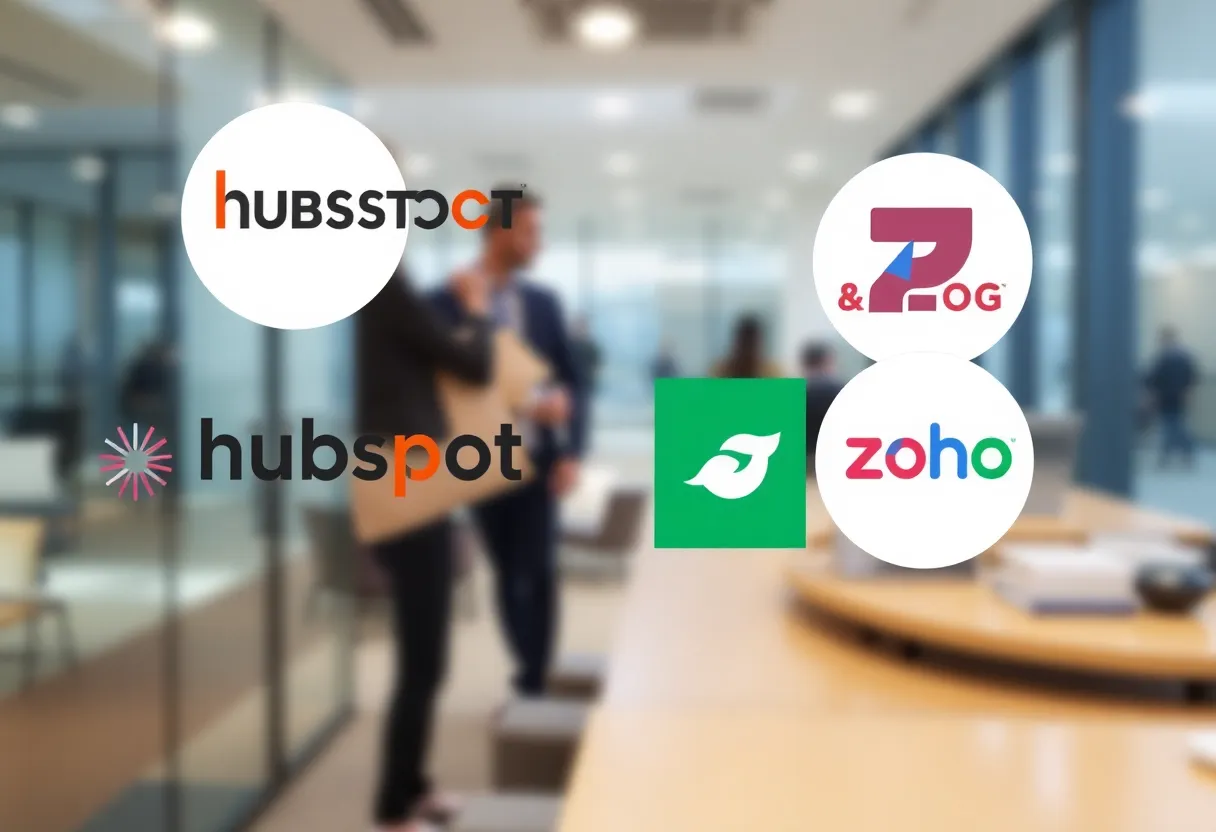News Summary
In the ever-evolving landscape of business, selecting the right Marketing CRM software is essential for managing leads and customer relationships effectively. As we approach 2025, key players like HubSpot, Pipedrive, and Zoho CRM stand out, offering various features tailored to meet unique business needs. A good CRM integrates marketing and sales, enhancing customer engagement and satisfaction, which ultimately drives growth.
Discovering the Best Marketing CRM Software for 2025
The world of business is constantly evolving, and with digital marketing at the forefront, finding the right tools to help you manage your leads and customer relationships is more important than ever. Enter Marketing CRM software, which is a game-changer for businesses looking to efficiently create, manage, and nurture leads. But what exactly does CRM software do for marketing? Let’s dive in!
A Helpful Hand for Businesses
Marketing CRM software streamlines various aspects of customer interactions while providing insights to improve overall marketing strategies. Key campaign strategies it can help with include email marketing, social media outreach, digital content marketing, in-person events, and referral programs. This software doesn’t just send out emails; it tracks how prospects engage with your content, helping you create a positive brand perception.
Integrating Sales and Marketing
One of the standout features of many modern CRM solutions is their ability to integrate marketing products with sales tools. This means businesses can have all their needs covered under one roof, helping to maintain a seamless workflow. When considering a CRM, it’s essential to focus on key marketing features such as email templates, integrations, and marketing automation.
Top CRM Software to Watch in 2025
With 2025 just around the corner, some CRM providers are catching everyone’s eye. Names like HubSpot, Pipedrive, and Zoho CRM are leading the pack. Each of these platforms comes with its pros, cons, and pricing models, making it easier for businesses to choose the best option for their unique needs.
- HubSpot: Not only does it have a Marketing Hub with free features like email marketing and web forms, but it also offers paid subscriptions for advanced features such as multiple currencies and email health insights. It’s a great beginner-friendly option for startups, but watch out for premium upgrades that might stretch your budget.
- Zoho CRM: More budget-friendly, Zoho CRM boasts omnichannel communication capabilities. It focuses on equipping businesses with essential marketing and social media features.
- Pipedrive: Known for its customizable email marketing tools and dedicated support for niche industries, Pipedrive does not offer a free tier, which may make it less attractive for companies looking to test the waters before committing.
- monday CRM: This visually appealing software provides collaboration tools and a customizable interface, which can be done without coding. It’s perfect for teams that thrive on creativity and organization.
- Salesforce: If you’re in an enterprise, Salesforce is the way to go. It’s designed for complex sales cycles and allows extensive customization along with mobile access.
- ClickUp: Though primarily focusing on documentation and project management, ClickUp doesn’t offer a lot of marketing tools, but it provides an affordable alternative for businesses that need robust project management.
Understanding What You Really Need
When choosing a CRM, understanding your business’s needs is crucial. Think about features that matter to you, such as: pipeline management, marketing automation, lead nurturing, and integrations. It’s always wise to research thoroughly by exploring demos or free trials before making any decisions. This way, you can assess various software functionalities, vendor pricing, add-ons, and billing cycles.
Cost Considerations
CRM software generally operates on a subscription-based model, charging per user either monthly or yearly. While this might seem like a small investment at first, costs can accumulate quickly, especially with advanced features. Small businesses can take advantage of basic subscriptions that provide a well-rounded mix of marketing and sales tools, leading to a balanced growth rate.
Boosting Engagement and Satisfaction
Ultimately, integrating a strong marketing CRM can enhance customer engagement and improve service responses. As businesses manage campaigns through CRM, they can develop insights that guide future strategies, leading to higher conversion rates. Features like AI and ML capabilities, customer segmentation, and mobile compatibility are more prominent now than ever, shaping the modern user experience.
So, whether you’re a small business looking to grow or a large enterprise in need of specialized tools, there’s a marketing CRM out there that’s perfect for you. Get exploring, and find your ideal match for the upcoming year!
Deeper Dive: News & Info About This Topic
HERE Resources
Novi Residents Welcome Novi Health + Wellness
JW Digital Marketing Shines with 2024 Best of Georgia Honorable Mention
Exciting Social Media Trends That Will Shape Marketing Strategies by 2025
2025 Overview: The Importance of Social Media Marketing
Discovering the Best Marketing CRM Software for 2025
The Exciting Growth of Digital Marketing: Key Players Making Waves
How to Harness the Power of Chatbots for Your Digital Marketing Strategy
How to Create an Impactful Digital Marketing Strategy for Small Businesses
Discover Affordable Email Marketing Solutions for Small Businesses in Melbourne
Additional Resources
- HubSpot Marketing Hub
- Pipedrive
- Zoho CRM
- Salesforce
- monday CRM
- ClickUp
- Wikipedia: Customer Relationship Management
- Encyclopedia Britannica: Customer Relationship Management
- Google Search: marketing CRM software
- Google News: marketing CRM








